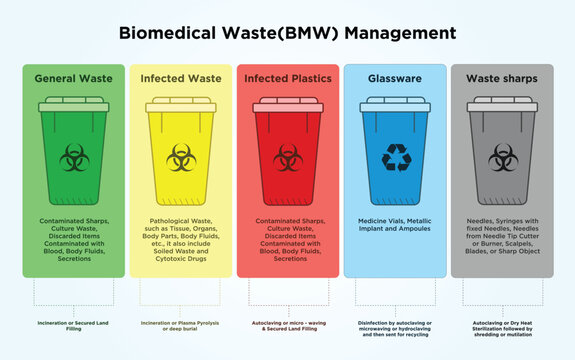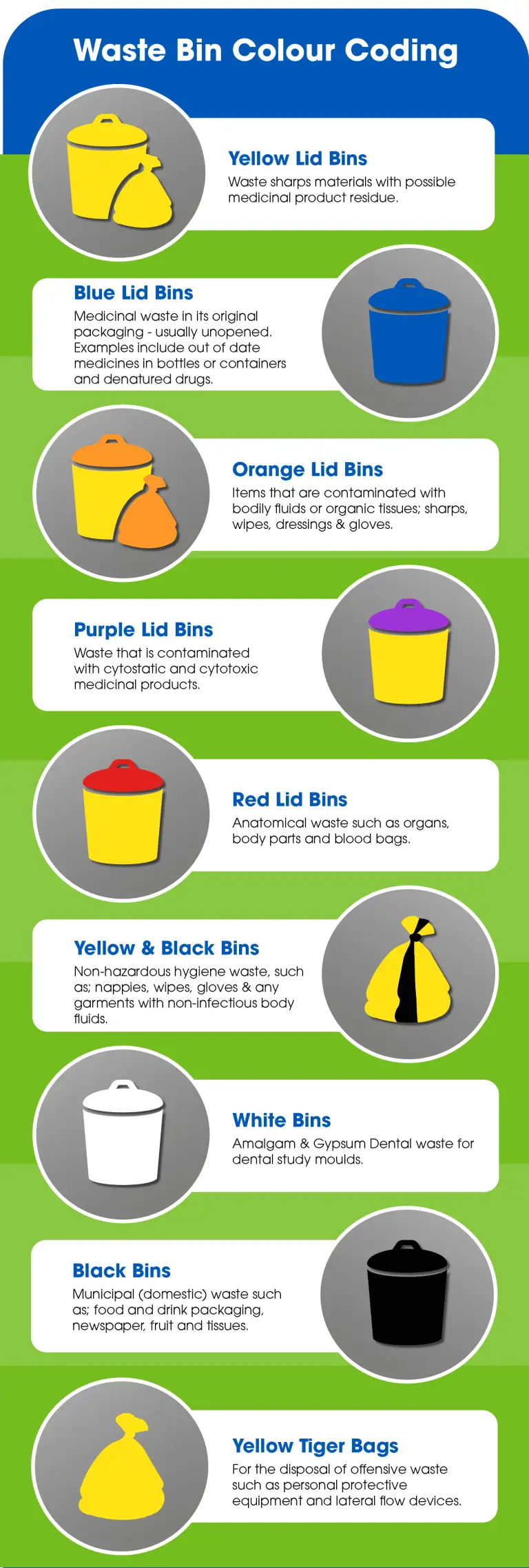Correct Disposal Strategies for Medical Waste
Appropriate disposal methods for clinical waste are of utmost relevance in guaranteeing the security of both health care employees and the public. The appropriate handling and disposal of medical waste is critical to avoid the spread of infectious diseases and the contamination of the atmosphere. This includes the risk-free disposal of sharps, contagious waste, and pharmaceutical waste. Abiding by stringent guidelines set by governing bodies is important to maintain compliance with legal guidelines and secure public health and wellness. This intro will certainly discover the importance of correct clinical waste disposal, give standards for taking care of various kinds of waste, and stress the demand for medical care centers to embrace best methods. By complying with these guidelines, doctor can add to a more secure and much healthier atmosphere for all.
Importance of Correct Medical Garbage Disposal
Appropriate clinical waste disposal is of utmost importance in order to stop the spread of infections and protect public health and wellness. Medical waste refers to any kind of waste generated during clinical treatments or from the medical care sector.
One of the key factors for correct clinical waste disposal is to prevent the spread of infections. By securely disposing of clinical waste, the opportunities of direct exposure to these virus are considerably minimized, making certain the safety of health care employees, individuals, and the community at huge.
Furthermore, correct medical waste disposal is necessary for safeguarding public wellness. By following correct disposal techniques, such as containment, partition, and therapy, we can decrease the prospective threats linked with clinical waste and protect the health of the area.
Handling and Disposing of Sharps
When it pertains to the handling and disposal of sharps, adherence to proper methods is crucial for ensuring the safety and security of healthcare workers and stopping the danger of injury or infection. Sharps consist of needles, syringes, lancets, and various other products with the possible to reduce the skin or pierce. Due to their possible to transmit bloodborne microorganisms, such as HIV and liver disease B and C, it is important to get rid of and deal with of sharps appropriately.

Disposal of sharps containers must comply with neighborhood regulations and guidelines (WasteX Medical Waste Disposal). It is essential to never ever wrap up needles or bend, break, or get rid of needles from syringes. Once the container is full, it needs to be firmly sealed and gotten rid of according to neighborhood policies. It is best to use certified medical garbage disposal services that focus on the appropriate handling and disposal of sharps to make sure compliance with laws and minimize threats to health care workers and the atmosphere.
Guidelines for Infectious Waste Disposal
Infectious waste, also understood as biohazardous or biomedical waste, refers to materials that are possibly contaminated with transmittable agents or other harmful compounds. Proper disposal of transmittable waste is crucial to guarantee the safety and health of health care employees, people, and the general public.
The guidelines for transmittable waste disposal vary depending on the nation and local guidelines, but there are some typical techniques that health care centers should comply with. All transmittable waste ought to be set apart from other types of waste at the point of generation. Transmittable waste should be delivered and disposed of by licensed waste administration firms that specialize in handling biomedical waste.
It is very important for medical care centers to have extensive training programs in position to educate staff on the correct treatments for transmittable garbage disposal. This consists of training on waste segregation, storage, and managing techniques. By complying with these standards, health care facilities can successfully manage transmittable waste, decrease the threat of infections, and safeguard public health.
Best Practices for Drug Waste Disposal
Drug garbage disposal must always be carried out on a regular basis and in accordance with expert guidelines. Correct monitoring of pharmaceutical waste is vital to shield public health and the environment. Pharmaceuticals can position a considerable danger otherwise dealt with correctly, as they may contaminate water sources, injury aquatic life, or even add to the growth of antibiotic resistance.
One of the best methods for pharmaceutical waste disposal is to develop a designated collection system within healthcare centers. medical waste removal. This system should consist of different containers for different kinds of pharmaceutical waste, such as run out medications, extra medications, and polluted materials. These containers need to be clearly identified and located in easily obtainable areas to encourage appropriate disposal by medical care experts
Additionally, it is crucial to enlighten health care staff about the correct handling and disposal of pharmaceutical waste. Training programs should concentrate on determining different kinds of pharmaceutical waste, recognizing the associated threats, and complying with the appropriate disposal treatments. Normal suggestions and updates must be provided to make certain conformity with disposal standards.
Along with interior techniques, health care centers ought to likewise establish collaborations with certified waste monitoring companies. These firms specialize in the collection, transportation, and disposal of pharmaceutical waste. By functioning with these professionals, medical care facilities can make sure that their pharmaceutical waste is dealt with safely and in compliance with neighborhood policies.
Compliance With Legal Regulations
In order to guarantee compliance with lawful guidelines, it is necessary for health care centers to adhere to correct disposal methods for clinical waste. Medical waste postures a considerable danger to public health and the setting, making it important for medical care facilities to manage and get rid of of it helpful site in accordance with the regulation.
Regulatory bodies, such as the Occupational Security and Wellness Management (OSHA) and the Environmental Protection Company (EPA), have actually established standards and demands for the appropriate disposal of medical waste - WasteX Medical Waste Disposal. These regulations aim to protect medical care workers, waste management employees, and the general public from potential threats connected with medical waste

Non-compliance with lawful guidelines can lead to serious repercussions for health care facilities, including fines, lawful responsibilities, damages to track record, and possible harm to public wellness. Therefore, it is vital for medical care centers to stay current with the latest laws and continually screen and improve their waste management techniques.
Verdict
Sticking to standards for taking care of and disposing of sharps, infectious waste, and pharmaceutical waste is important. It is critical that health care facilities preserve rigorous protocols for the appropriate disposal of clinical waste to decrease risks and preserve a risk-free medical care environment.
Medical waste refers to any type of waste produced throughout clinical treatments or from the healthcare industry. Infectious waste, likewise understood as biohazardous or biomedical waste, refers to products that are possibly infected with transmittable representatives or other hazardous substances. All contagious waste ought to be set apart from various other kinds of waste at the factor of generation. Transmittable waste needs to be delivered and disposed of by qualified waste monitoring firms that specialize in dealing with biomedical waste.
Adhering to guidelines for dealing with and disposing of sharps, transmittable waste, and pharmaceutical waste is necessary. (medical waste disposal service)